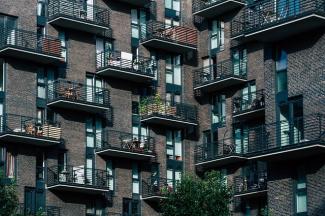Is this the end for Leasehold properties?
Laura Mather 02-06-2025
On 3 March 2025, the government set out a proposal to abolish the current leasehold system and replace it with a reformed commonhold model of home ownership. Housing and Planning Minister Matthew Pennycook said: “These reforms mark the beginning of the end for a system that has seen million of homeowners subject to unfair practices and unreasonable costs at the hands of their landlords and build on our Plan for Change commitments to drive up living standards and create a housing system fit for the twenty-first century”.
What is a leasehold property?
Under the current system, leasehold and freehold are by far the most common forms of home ownership. When you buy a house, you will usually buy the associated freehold, which means that you own the property and the land it sits on, and are thus entirely responsible for it. However, if you own a flat, or a more recently built home, you will often own a leasehold property.
A lease is a little like a property rental agreement, the main difference being that the lease lasts for far longer than the typical tenancy. In leasehold cases, you enter a lease (often lasting 100+ years) with the freeholder of the building, and this lease sets out what you can and cannot do with your property. Leaseholders will usually pay ground rent to the freeholder, and will have to comply with various other restrictions as set out in the lease. Whilst you may have access to common spaces (car parks, corridors, etc.), you would usually have no formal ownership of these areas.
Why is the leasehold system changing?
The leasehold system has come under extensive scrutiny over recent years, and continues to cause leaseholders a number of difficulties, with common examples of issues being as follows:
- Leaseholders have to pay ground rent and service charges, which can be subject to unreasonable increases, year on year. This has been the source of much controversy, as unsuspecting individuals have entered into leases which see ground rent exponentially increase, leaving them unable to even obtain a mortgage or sell the property
- Leaseholders can be served with a Section 20 notice at any time by the freeholder or property manager, which could result in an obligation to pay extra service charges for out-of-the-ordinary repairs and works.
As leaseholders have limited rights over common spaces, these are often left in disrepair, and there have been numerous more serious issues surrounding fire safety at leasehold properties.
What is the Commonhold system?
A third form of ownership, commonhold, was introduced in 2004, although since then it hasn’t seen much use. If you buy a flat under a commonhold agreement, you will own the freehold of your home, and be part of a residents’ association which will own and manage the common parts of the property.
The most important differences between leasehold and commonhold is that, as a commonholder, you have a share of ownership in the common areas of the property. Therefore, whilst you will likely need to contribute to the cost of upkeep of these areas, you will not have to pay ground rent to any third-party landlord or freeholder.
Whilst moving to a commonhold system would address many of the issues laid out above, the government faces a huge challenge in rapidly expanding this new kind of home ownership. There are currently fewer than 20 commonhold developments in the entirety of England and Wales, as converting from leasehold to commonhold is plagued with difficulties, and new developments have been unwilling to trust an untested system, and existing buildings face a number of hurdles in converting from leasehold to commonhold. Therefore, it is likely that leaseholds will be with us for years if not decades to come.
Buying or selling a leasehold property?
At Samuels, we have extensive experience in the selling and purchasing of leasehold properties, as well as dealing with the issues and disputes that can arise from this type of home ownership. We are longstanding members of the Conveyancing Quality Scheme, and we regularly advise on entering into leasehold agreements, as well as other issues that commonly arise with leases or freeholds.
If you have been served with a Section 20 notice, are concerned about the safety standards of your leasehold building, or are experiencing any other problem with your leasehold property, we can help. Please call to speak to one of our expert property lawyers today.
Article Credit: Dylan Holmes

